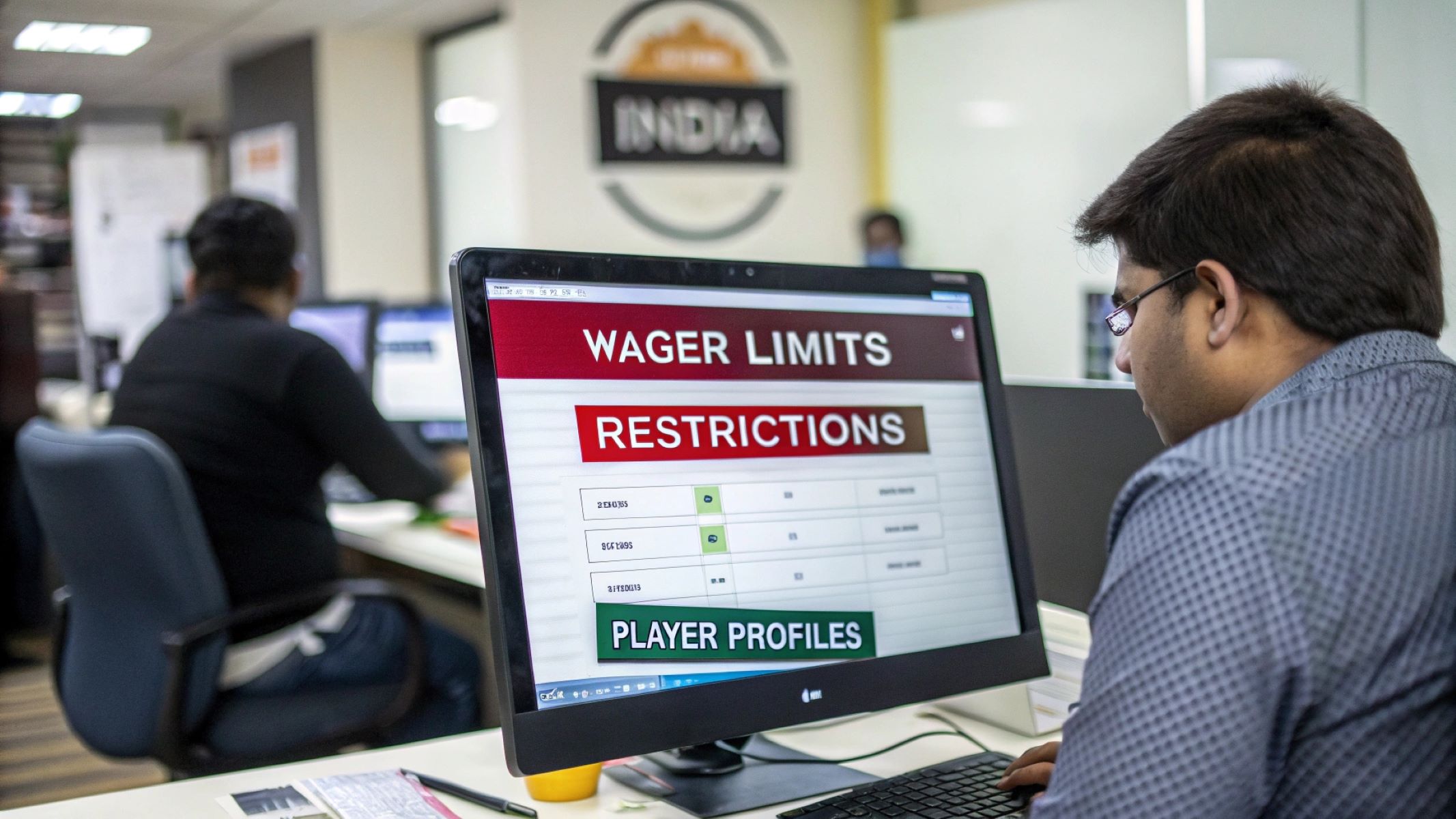Online betting in India is like a wild river — rapidly growing, exciting, but also full of twists and turns. Over the past decade, the digital revolution has brought betting platforms to the fingertips of millions. But how much do government policies shape this booming industry? Let’s dive into how the Indian government’s laws and regulations impact online betting, shaping its growth, challenges, and future.
Online Betting in India
Online betting refers to the act of placing wagers or bets on various events through internet-based platforms. These events can range from sports matches and casino games to poker tournaments and fantasy sports contests. In India, this has become a popular form of entertainment, especially as smartphones and internet access have become more widespread. Online betting allows users to participate in their favorite games and sports from the comfort of their homes or on the go, without needing to visit physical betting shops or casinos. The convenience and accessibility of these platforms have attracted millions of users, making online betting an increasingly mainstream activity.
Popular Types of Online Betting Platforms in India
The Indian online betting market is dominated by a few key types of platforms, each catering to specific interests and demographics. Among these, fantasy sports applications like Dream11 have taken the lead, attracting millions of users nationwide. These apps allow players to build virtual teams based on real-life athletes and compete against others, turning sports fandom into an interactive and rewarding activity. Beyond fantasy sports, traditional online casinos have also gained traction, offering games such as roulette, blackjack, and slots to users who seek the thrill of casino gambling without leaving their homes.
Sports betting websites form another major segment of the online betting landscape. Cricket, being the most popular sport in India, naturally leads as the top choice for bettors, followed by football, kabaddi, and horse racing. These platforms provide various betting options, including match-winner bets, in-play betting, and odds-based wagers, catering to both casual and professional gamblers. The diversity and availability of these platforms mean that users have a wide range of choices, making the online betting market highly dynamic and competitive.
Growth Trends and Market Size
India’s online betting industry has witnessed explosive growth in recent years, fueled by several key factors. The widespread adoption of smartphones and affordable mobile data plans have made online betting accessible to a much larger audience, including in semi-urban and rural areas. Coupled with a growing internet user base, this digital penetration has created fertile ground for betting operators to expand their services rapidly. Additionally, increasing familiarity with online payments and digital wallets has made transactions smoother, encouraging more users to participate in online betting activities.
Market analysts predict that India’s online betting market will continue to grow at a robust pace, potentially reaching billions of dollars in annual revenue within the next few years. This growth is driven not only by the expanding user base but also by innovations in technology and game offerings that keep players engaged. Moreover, the rise of fantasy sports, which blends skill with betting elements, has attracted younger demographics and corporate sponsorships, further propelling market expansion. However, the industry’s future trajectory will also depend heavily on evolving government policies and regulatory frameworks, which could either foster growth or impose constraints.
Current Legal Framework Governing Online Betting
The Public Gambling Act, 1867
The cornerstone of gambling law in India is the Public Gambling Act, 1867, a colonial-era statute enacted during British rule. This law prohibits running or being in charge of a public gambling house and broadly criminalizes gambling activities in public places. However, the Act does not explicitly mention or regulate online betting or gambling, as the internet was nonexistent at the time of its drafting. Consequently, this omission has led to differing interpretations on whether online betting falls under the Act’s purview or not.
The Public Gambling Act is enforced differently across various states, with some states adopting their own amendments or complementary laws. Since the Act predates the digital era, courts and policymakers face challenges applying it to internet-based betting platforms. This lack of specific online betting provisions means the Act neither legalizes nor prohibits online betting clearly, which in turn has created a legal grey area that operators and users must navigate carefully. This grey area has encouraged some states to create their own regulations, while others continue to rely solely on this outdated framework.
State-Level Laws and Their Variations
India’s Constitution grants states the authority to legislate on gambling and betting, leading to significant variation across the country in how online betting is treated. Some states, such as Sikkim and Goa, have taken progressive steps by legalizing and regulating online betting through specific licensing frameworks. In these states, operators can obtain licenses, and players can legally participate in online betting within the regulatory guidelines, which include measures for fair play and tax collection.
Conversely, many states, including Telangana, Andhra Pradesh, and Bihar, have implemented stringent bans on all forms of online betting and gambling. These bans carry severe penalties, including fines and imprisonment for operators and sometimes even for players. Other states adopt a middle ground approach, neither explicitly legalizing nor banning online betting, effectively maintaining the status quo and allowing the industry to operate in a murky legal environment. This patchwork of differing laws leads to a fragmented market, where online betting is legal in some jurisdictions and illegal in others, complicating business operations and user access.
Summary of state-level variations:
- Sikkim & Goa: Licensed and regulated online betting markets.
- Telangana & Andhra Pradesh: Strict bans with criminal penalties.
- Other states: No clear regulation; legal ambiguity persists.
Recent Legal Developments
The legal landscape around online betting in India is evolving, thanks to a series of recent rulings by the Supreme Court and various High Courts. These judgments have attempted to clarify whether certain forms of online betting constitute “games of skill” or “games of chance,” which is critical because games of skill are generally exempt from gambling prohibitions under Indian law. For example, fantasy sports platforms like Dream11 have been ruled legal in some cases on the basis that they involve skill rather than pure chance, opening the door for further regulation and growth.
However, the judiciary has not provided a definitive, nationwide ruling that settles the entire matter. Courts have often emphasized that online betting’s legality depends on state laws, further cementing the fragmented nature of regulation. Besides, there are ongoing challenges to bans in certain states, and the government itself has shown interest in drafting more concrete legislation to address the online betting sector specifically. These legal developments have led to more cautious operation by platforms, which now often restrict services in states with outright bans, while pushing for better regulation elsewhere.
Key points on recent developments:
- Distinction between games of skill vs. chance influences legality.
- Supreme Court rulings favor fantasy sports under “skill” category.
- Courts defer to state laws for regulation enforcement.
- Government discussions underway for clearer regulations.
- Operators adapting to state-specific rulings to remain compliant.
Key Government Policies Affecting Online Betting
The Indian government’s policies play a crucial role in shaping the online betting industry, influencing how operators run their businesses and how players engage with platforms. One of the primary areas of focus is regulation and licensing requirements. Several states that permit online betting mandate that platforms obtain official licenses before operating legally within their jurisdiction. These licenses ensure that operators comply with local laws and standards designed to protect consumers and maintain fair gaming environments. Licensing authorities often set stringent conditions related to data security, player protection, and dispute resolution to enhance user confidence. For instance, states like Sikkim and Goa have developed licensing frameworks specifically tailored to online betting, which create a controlled environment for both operators and players.
In addition to licensing, the government imposes taxation policies on online betting revenue, targeting both operators and players. The introduction of Goods and Services Tax (GST) on betting transactions has increased the tax burden on platforms, while Tax Deducted at Source (TDS) applies to players’ winnings, ensuring government revenue collection from this fast-growing sector. These fiscal measures aim to regulate the industry financially and prevent tax evasion. Furthermore, advertisement restrictions are another key policy area, as the government seeks to curb the excessive promotion of gambling to protect vulnerable populations, including minors. Strict rules limit where and how betting platforms can advertise, especially on television, social media, and public spaces, aiming to strike a balance between business promotion and social responsibility.
| Policy Area | Description | Impact on Industry | Examples/Notes |
| Regulation & Licensing | Mandatory licenses for legal operation in certain states | Ensures fair play, consumer protection | Sikkim, Goa have formal licensing systems |
| Taxation | GST on operators; TDS on player winnings | Government revenue; increased operational costs | GST rate ~18%; TDS thresholds vary |
| Advertisement Restrictions | Limits on gambling ads on TV, social media, public spaces | Reduces exposure, protects minors and vulnerable groups | Rules enforced by Ministry of Information and Broadcasting |
Positive Impacts of Government Policies
Government regulations and policies have brought several positive effects to the Indian online betting landscape. First and foremost, they ensure fair play and transparency across betting platforms. By mandating clear disclosure of odds, payout percentages, and randomization methods, regulators help protect players from unfair practices. Transparency rules force operators to maintain integrity and allow users to verify that the games or bets they engage in are genuine and unbiased. This improves consumer trust, encouraging more people to participate in online betting safely and responsibly.
Moreover, the imposition of licensing requirements and strict regulatory oversight has helped in protecting players from illegal betting operations. Rogue operators often engage in fraudulent activities, including rigging games or refusing payouts, which harms the reputation of the industry as a whole. Government intervention filters out such bad actors by enforcing licensing policies and conducting regular audits. This crackdown on illegal betting not only safeguards consumers but also promotes a healthier business environment. Finally, the implementation of tax policies has resulted in increased tax revenues for the government. These funds can be channeled toward public services, infrastructure development, and awareness campaigns about responsible gambling. In this way, the growing online betting sector contributes positively to the broader economy.




